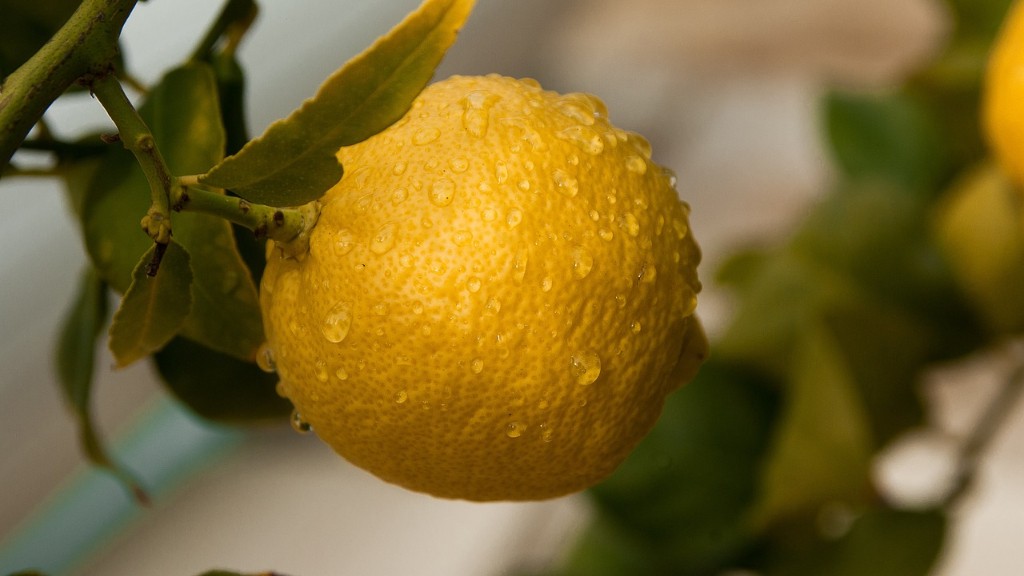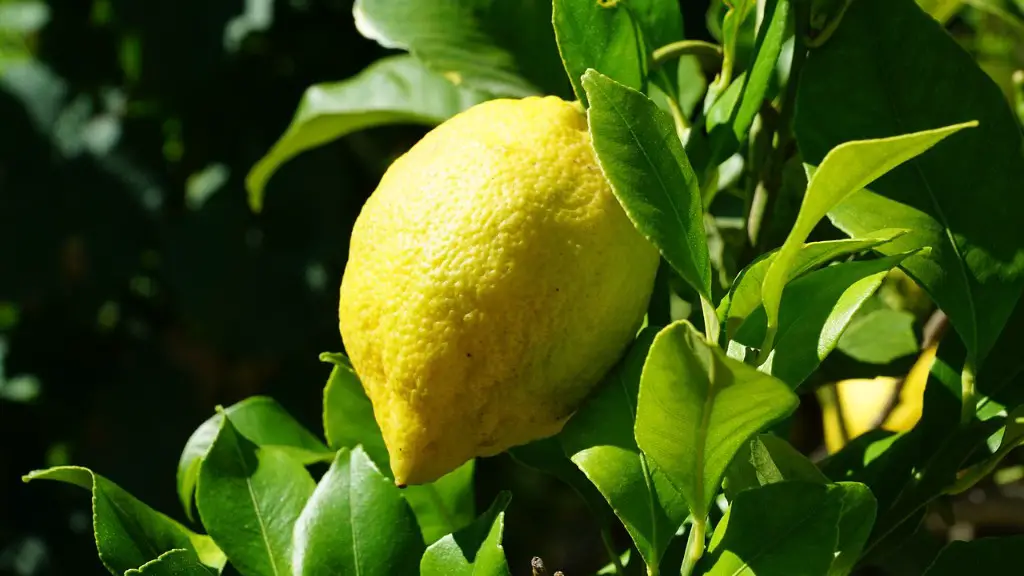Lemons have a tendency to fall off the tree before they are ripe, leaving those who cultivated them without the desired yield. But why? Could it be that they received too much attention or too little water? Or is something else at work? To answer this question, it is important to look at the factors that affect a lemon tree’s health and fruit production.
The amount of water a lemon tree receives is one key factor. If the tree receives too much water it can weaken the structure of the trunk and branches and make it more susceptible to damage, leading to the fruit falling off. Likewise, if the tree does not receive enough water it will suffer from drought and can make the fruit more vulnerable to fall off.
Another important factor is the amount of sunlight the tree receives. Too much sunlight can scorch the leaves, weakening them and make the fruit more vulnerable to fall off. On the other hand, too little light can lead to reduced photosynthesis and a weaker plant structure, again making the fruit more prone to fall off.
The temperature and humidity can also be factors. The sun’s heat causes the fruit to expand and contract with each cycle, leading to a weakened stem, and also reduces the effectiveness of photosynthesis. In addition, high levels of humidity cause an increased risk of fungal and microbial infections, leading to a weakened tree and fruit can fall off due to their weakened attachment.
Finally, the amount of nutrients a tree receives is also a key factor in its health and the production of lemons. If a tree does not receive enough nutrients it will not be able to produce fruit. In addition, some pests, such as aphids and spider mites, can cause fruit to drop off prematurely if left unchecked.
Variety of Trees
The variety of tree also has a major influence on why lemons may fall off the tree. Some tree varieties are naturally more prone to fruit drop, and if a tree is not suited to its environment it is likely the fruit will drop before they can be harvested.
The age and health of a tree can also determine the likelihood that lemons will fall off. If a tree is too old it may not be able to support a full crop, or has a weaker structure, which could lead to the fruit not being harvested. Another issue is health. If a tree is affected by disease or pests, it could affect its ability to produce healthy fruit, and the fruit may not be fit for harvesting.
In some cases, the weather can lead to the premature dropping of lemons. A sudden cold spell could, for instance, damage the skin of a Lemon and reduce its quality, leading to the fruit being dropped rather than harvested. Likewise, if an area experiences hail or strong winds, it can cause the fruit to fall off as the tree’s branches cannot support the extra weight.
Finally, the amount of handling of a tree can have an effect on the fruit’s vulnerability to fall off. Too much pruning, or excessive fertilisation, can weaken a tree’s structure and reduce its ability to produce the right quality of fruit, leading to the premature dropping of lemons.
Soil and Fertiliser
The type of soil a tree is growing in and the amount of fertiliser applied can also contribute to the dropping of lemons. If a tree is in too shallow of soil, or the wrong kind of soil for its species, it may not be able to take up the nutrients required for proper fruit production, leading to weaker fruit that is more prone to drop off. In addition, the use of too much, or an inappropriate type of, fertiliser can produce a weak, over-fertilised tree, and the fruit will not be of good enough quality to harvest.
The amount of fertiliser is also important. If a tree is given too little it will not have enough nutrients to support fruit production at its optimal level. On the other hand, too much fertiliser can affect the tree’s structure, leading to weaker fruit that is more prone to drop off.
Finally, if a tree is grown in an area with poor drainage, water may not be able to reach the tree’s roots, leading to an unhealthy lemon tree. Lemon trees that do not receive enough water have a higher risk of dropping their fruit prematurely.
Pruning and Harvesting Techniques
The pruning and harvesting techniques employed can also affect the quality of a lemon crop and the likelihood of the fruit dropping prematurely. If a tree is pruned too aggressively then it may be weakened and the fruit may not be of good enough quality to harvest due to the weakened attachment. Likewise, if a tree is not pruned at all then it may become overgrown, leading to a reduced overall yield.
The technique used for harvesting can also have an effect on the fruit’s vulnerability to fall off. If a tree is handled too roughly when it is being harvested, then the fruit may become dislodged and fall off. On the other hand, if a tree is not pruned or harvested at all then it may be subjected to extreme weather conditions, and the fruit may fall off without being harvested.
Finally, harvesting techniques are also important. If too many lemons are picked off of the same tree at one time then the tree may become overwhelmed, leading to premature fruit drop. Likewise, if lemons are left on the tree for too long then they may over-ripen and fall off before they can be harvested.
Conclusion
In conclusion, there are a variety of factors that can lead to the premature dropping of lemons from a tree. The amount of water and sunlight received by the tree, the temperature and humidity, and the type and amount of fertiliser used all have an influence. In addition, the variety of tree, its age, health and the pruning and harvesting techniques employed can also affect the likelihood of fruit drop. By understanding and managing these factors, it is possible to reduce the risk of lemon fruit drop and ensure a good harvest.


